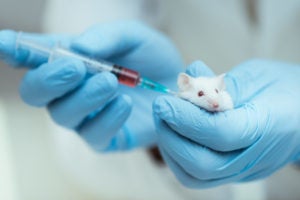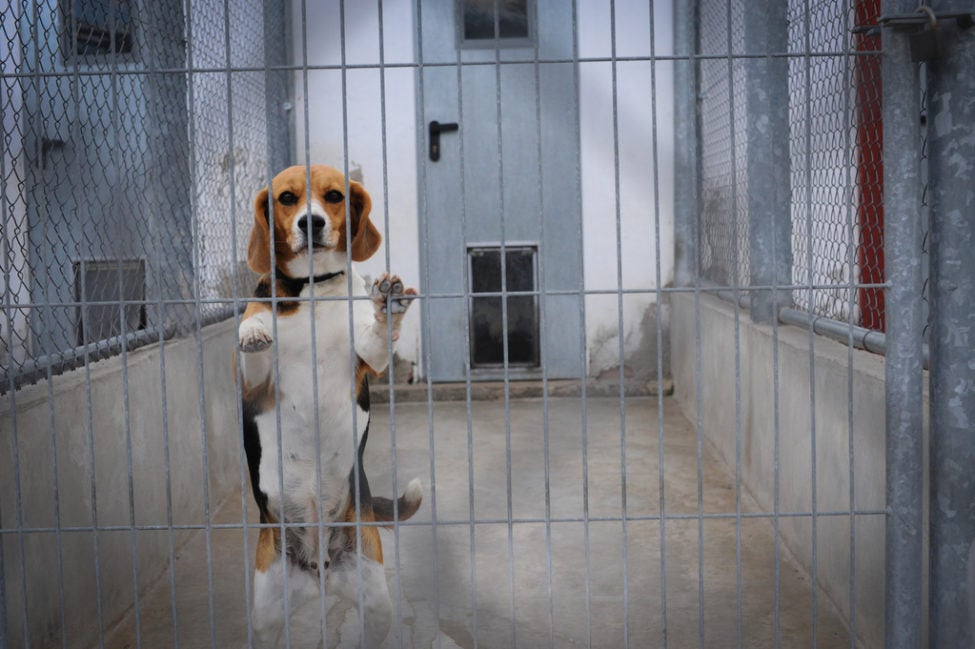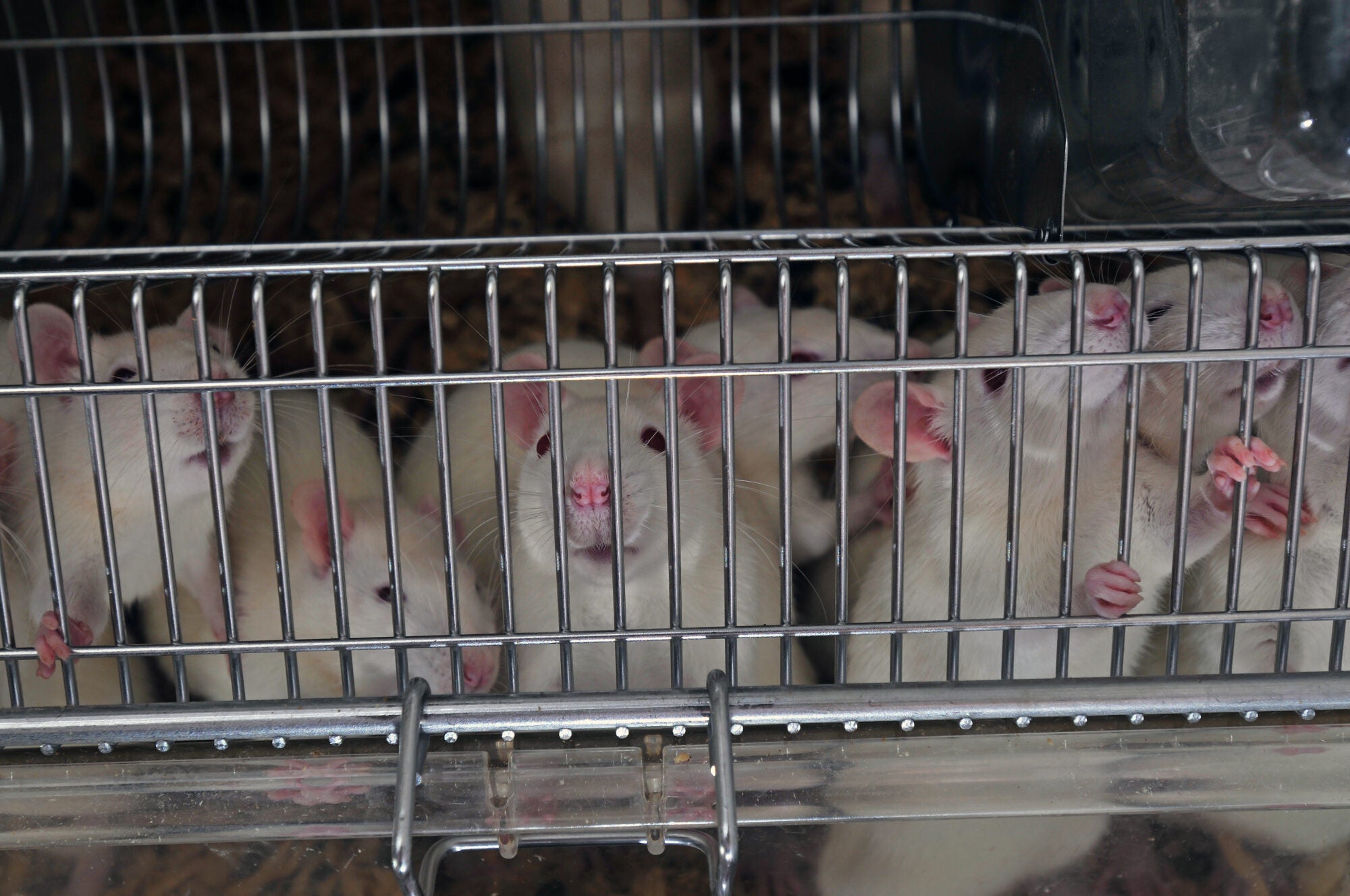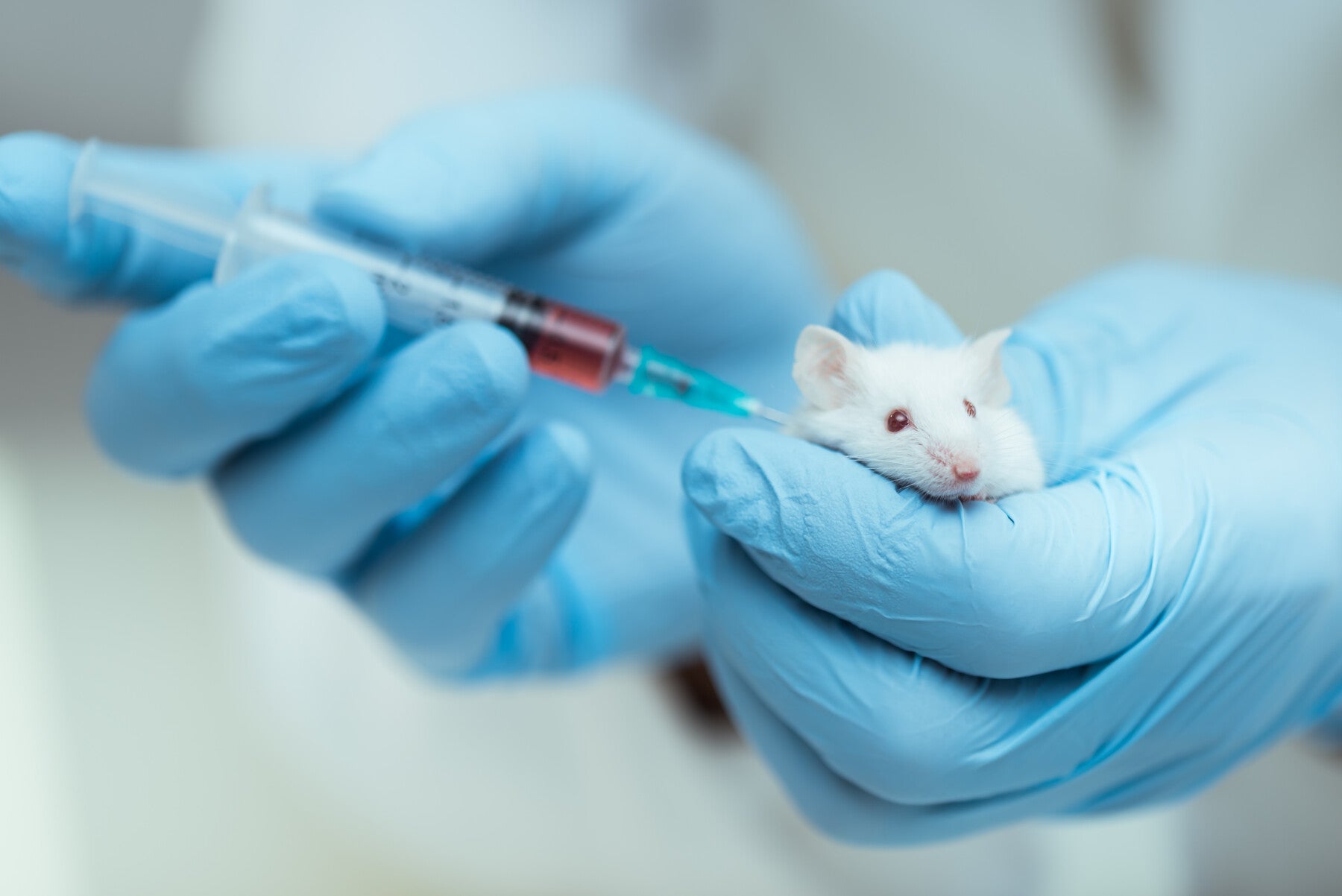
LONDON—Home Office statistics published today reveal that the number of animals suffering in invasive, painful and often lethal experiments in British laboratories has stayed broadly the same almost a decade after the government pledged to reduce animal use. Despite the unprecedented availability of high-tech and more human-predictive non-animal techniques, UK laboratories completed a total of 3.4 million procedures in 2019, down by just 8% on 2010 when the government made its now broken promise. Animal protection charity Humane Society International/UK says as the UK exits the European Union, if Britain hopes to lead the world in science innovation, the government must do far more to move away from outdated animal use.
Earlier this month, the UK government published an ambitious R&D roadmap setting out plans to “revitalis[e] our whole system of science, research and innovation to release its potential”. However, achieving that goal will only be possible in biomedical research if we move away from relying on animal-based approaches that don’t translate to humans, and embrace human biology as the true “gold standard”.
Dr Lindsay Marshall, HSI/UK’s biomedical science advisor, said: “The UK cannot expect to have world-leading science innovation whilst we rely on failing animal-based research methods that are rooted in the past. In drug discovery, pharmaceutical safety, chemical testing, cancer research, the data shows that animal models are really bad at telling us what will happen in a human body. As well as sometimes being dangerously misleading, animal approaches typically take a really long time to produce results, sometimes years, are very expensive, and of course cause enormous animal suffering. As the UK leaves the EU and competes with countries like the USA that are taking bold strides towards animal-free science, we urge the government to radically update its 2010 research policy to focus on replacing animal procedures in science. Incentivising researchers to adopt new approaches is as easy as redirecting public research funding towards cutting-edge non-animal techniques based on human biology.”
Hannah Stuart, HSI/UK’s senior policy specialist, added: “It is so disappointing to see the UK animal experiments numbers show no sustained, significant decrease over time. It’s been almost 10 years since Britain’s reduction pledge, yet the UK remains one of the highest users of animals for science in Europe, with the 2019 total almost exactly the same as it was in 2010. In those same years, non-animal technologies have advanced enormously, now making a reduction strategy hopelessly unambitious, and lagging behind other countries harnessing the innovative technologies revolutionising biomedical research and toxicity testing. If we want Britain to be able to compete on the world stage, what we need to see from the UK government is a strategy for replacing animals in science that sets clear targets and is supported by prioritised investment in innovative, animal-free technologies that advance science and accelerate medical progress.”
In January 2017, the Dutch government announced plans to phase-out animal use for chemical safety testing by 2025, and is well on track to achieve this goal. Belgium’s Brussels-Capital Region banned animal testing on cats, dogs and primates effective January this year, and by January 2025 it will also ban animal use in education and safety testing unless deemed absolutely necessary. In September 2019, the US Environmental Protection Agency pledged to “aggressively” reduce animal testing, including removing requirements and funding for experiments on mammals by 2035.
The annual statistics for the number of animal experiments conducted in UK laboratories in 2019 show that a total of 3.4 million procedures were completed, including 4,277 tests on dogs, over 1.2 million tests on mice and rats, 2,850 tests on monkeys, 17,119 on rabbits and guinea pigs, and 131 tests on cats. Of these, 72,777 animals were subjected to what is classified as severe suffering, the highest category allowed under the law.
ENDS
HSI contact: Dr Lindsay Marshall, lmarshall@hsi.org
Notes:
Home Office statistics on the total number of animal procedures: 2019 3.4 million; 2018 3.52 million; 2017 3.79 million; 2016 3.94 million; 2015 4.14 million; 2014 3.87 million; 2013 4.12 million; 2012 4.11 million; 2011 3.79 million; 2010 3.7 million. It is noted that in 2014 the Home Office adjusted the way the statistics are calculated but this makes only a marginal difference in the picture overall.



